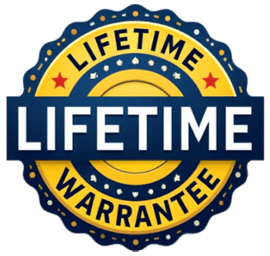The Importance of Water Testing for Homeowners
Water is an essential resource for every household, serving multiple purposes from drinking and cooking to cleaning and bathing. However, many homeowners overlook the quality of the water that flows through their taps. This negligence can lead to serious health risks and even affect the value of their property. Regular water testing is crucial for ensuring that your water supply is safe and free from harmful contaminants. In this article, we will explore the significance of water testing, the common contaminants found in residential water, and the benefits of maintaining water quality.
Understanding Water Quality
Water quality refers to the physical, chemical, and biological characteristics of water. It is essential to ensure that the water you consume and use in your home meets safety standards. Contaminated water can lead to various health issues, including gastrointestinal illnesses, developmental problems in children, and long-term exposure to toxic substances.
Health Implications
The health risks associated with contaminated water are significant. Common contaminants such as bacteria, nitrates, heavy metals, and volatile organic compounds (VOCs) can pose serious threats to your family’s well-being. For instance, lead exposure can lead to developmental delays in children, while high nitrate levels can cause “blue baby syndrome” in infants. Regular testing helps identify these harmful substances early, allowing homeowners to take necessary actions to protect their health.
Impact on Property Value
In today’s real estate market, homebuyers are increasingly aware of the importance of clean water. A property with a safe and reliable water supply is more attractive and can maintain its value better than one with known water quality issues. Poor water quality can lead to plumbing problems and reduce the lifespan of appliances, further diminishing property value.
Common Contaminants in Residential Water
Understanding the potential contaminants in your water supply is crucial for taking proactive measures. Here are some common culprits that water testing can identify:
Bacteria and Microorganisms
Harmful bacteria, such as E. coli and coliform bacteria, can infiltrate your water supply, especially in homes with private wells. These pathogens can cause severe gastrointestinal illnesses and other health issues. Regular testing is essential to ensure that your water is free from these harmful microorganisms.
Nitrates and Nitrites
These contaminants often originate from agricultural runoff, fertilizers, or sewage systems. Elevated nitrate levels can pose serious health risks, particularly for infants. Testing for nitrates is crucial, especially if you live near agricultural areas.
Volatile Organic Compounds (VOCs)
VOCs are chemicals that can enter your water supply from industrial or agricultural sources. Long-term exposure to these contaminants can lead to serious health issues, including cancer. Regular testing can help identify the presence of VOCs in your water.
Heavy Metals
Metals such as lead, mercury, and arsenic can seep into your water supply through old plumbing systems or environmental contamination. Lead, in particular, is a significant concern for homeowners, as it can cause severe health problems, especially in young children.
The Benefits of Regular Water Testing
Regular water testing offers numerous advantages for homeowners, ensuring both health and safety.
Early Detection and Prevention
Identifying water quality issues early allows homeowners to take swift action to improve their water supply. This may involve installing water filtration systems, repairing plumbing issues, or disinfecting wells. Early detection can prevent costly repairs and health risks.
Tailored Solutions Based on Local Risks
Water quality risks can vary depending on geographic location. Homes near agricultural sites, industrial zones, or areas with old plumbing systems may face specific risks. Professional water testing can provide tailored solutions to address these unique concerns.
Peace of Mind
Knowing that your water is safe for consumption provides invaluable peace of mind. Regular testing not only protects your family from long-term health risks but also ensures compliance with local, state, and federal water quality standards.
How to Test Your Water
Testing your water is a straightforward process, and there are several options available to homeowners.
DIY Water Testing Kits
For those who prefer a hands-on approach, DIY water testing kits are available in the market. These kits are typically affordable and can provide basic information about your water quality. However, they may not be as comprehensive as professional testing.
Professional Water Testing Services
For a more detailed analysis, consider hiring a certified water testing laboratory. Professional services can provide thorough testing for a wide range of contaminants, including heavy metals, bacteria, and VOCs. Many companies also offer customized testing options based on your specific needs.
Local Health Departments
Some local health departments offer low-cost or even free water testing services. They can provide guidance on how to collect water samples and what tests are necessary based on your location and potential risks.
When to Test Your Water
While regular testing is essential, certain situations may warrant more immediate testing.
After Heavy Rain or Flooding
Heavy rainfall can introduce contaminants into your water supply, especially if you rely on a private well. Testing after significant weather events is crucial to ensure your water remains safe.
Changes in Taste, Smell, or Appearance
If you notice any changes in your water’s taste, smell, or appearance, it’s time to conduct a water test. These changes can indicate the presence of contaminants that may pose health risks.
New Plumbing or Renovations
If you’ve recently made changes to your plumbing system or undergone renovations, testing your water is advisable. Construction activities can disturb contaminants and introduce new ones into your water supply.
Maintaining Your Water System
Routine maintenance is essential for ensuring the longevity and safety of your water system.
Regular Inspections
Conduct regular inspections of your well and plumbing system to identify any potential issues. Look for signs of wear and tear, leaks, or corrosion that could compromise water quality.
Proper Well Maintenance
If you have a private well, ensure that it is properly maintained. This includes checking the well cap for cracks, keeping chemicals and fuels away from the well, and maintaining your septic system.
Keeping Records
Maintain a log of your water test results and any maintenance performed on your water system. This information can be valuable for tracking changes in water quality over time and identifying potential issues.
Understanding Water Quality Standards
Familiarizing yourself with water quality standards is essential for ensuring that your water supply meets safety requirements.
Federal and State Regulations
The Environmental Protection Agency (EPA) sets standards for drinking water quality in the United States. Familiarize yourself with these regulations and ensure that your water supply complies with them.
Local Water Quality Reports
Many local water utilities provide annual water quality reports that detail the contaminants present in the water supply. Review these reports to stay informed about the quality of your water.
The Role of Homeowners in Water Safety
As a homeowner, you play a crucial role in ensuring the safety of your water supply.
Taking Responsibility
Unlike public water systems, private well owners are responsible for testing and maintaining their water quality. Regular testing and proactive measures are essential for safeguarding your family’s health.
Educating Yourself
Stay informed about potential contaminants in your area and the best practices for maintaining water quality. Knowledge is key to ensuring that your water supply remains safe and healthy.
Conclusion
In conclusion, regular water testing is vital for homeowners to ensure the safety and quality of their water supply. By understanding the potential contaminants, the benefits of testing, and the importance of maintenance, you can protect your family’s health and preserve the value of your property. Don’t leave your water quality to chance—make testing a priority and take proactive steps to ensure that your water is safe for consumption.
By prioritizing water quality, you can enjoy peace of mind knowing that your home is a safe haven for you and your loved ones.



